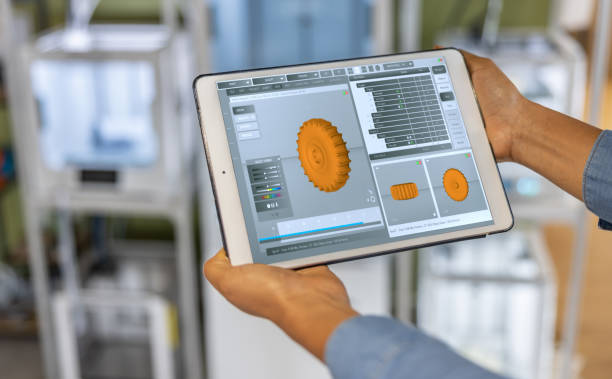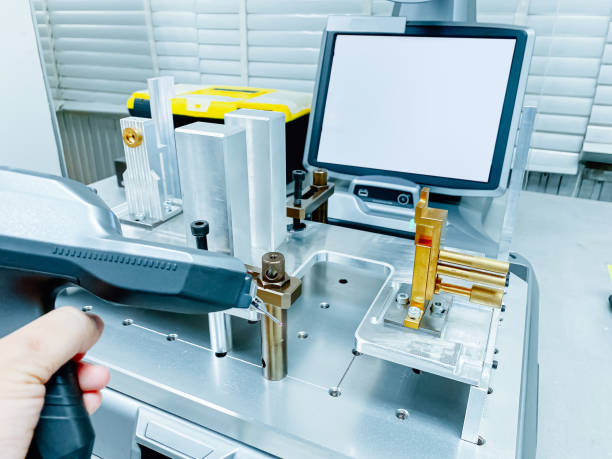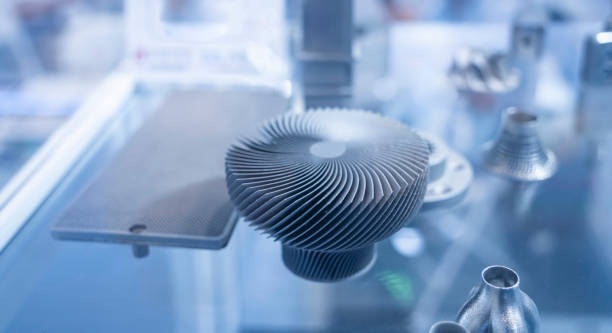- Oct 23, 2025
The medical industry demands the highest standards of safety, precision, and reliability. Every surgical tool, implant, and diagnostic component must perform flawlessly—often in life-critical situations. Achieving this level of quality requires not just advanced technology but the right CNC machining materials.
At Oakon, we specialize in precision CNC machining for the medical field, offering materials and techniques that guarantee both safety and accuracy.

Why Material Selection Matters in Medical CNC Machining
Precision Meets Biocompatibility
Medical devices must be biocompatible, corrosion-resistant, and dimensionally stable. Even a microscopic imperfection can lead to product failure or patient risk. Choosing suitable CNC machining materials ensures that every part—from surgical implants to diagnostic housing—meets strict regulatory and performance standards.
Key factors to consider:
Biocompatibility: Non-toxic and safe for contact with human tissue
Sterilization resistance: Materials must endure repeated cleaning cycles
Dimensional accuracy: Precision tolerances for surgical or implantable use
Corrosion resistance: Essential for exposure to fluids and chemicals
Top CNC Machining Materials Used in Medical Device Manufacturing
1. Stainless Steel – The Standard for Strength and Sterility
Stainless steel, especially 316L and 304 grades, remains one of the most widely used CNC machining materials for surgical instruments and implants.
Advantages:
High tensile strength and wear resistance
Excellent corrosion protection against body fluids
Easily sterilized without degradation
Cost-effective for high-volume production
Applications:
Surgical forceps, bone screws, implant plates, and hospital tools
At Oakon, we machine stainless steel components with precision down to ±0.01mm, ensuring safety and consistency across every part.
2. Titanium – Lightweight and Biocompatible Excellence
Titanium (especially Grade 5 Ti-6Al-4V) is prized for its unmatched strength-to-weight ratio and biocompatibility. It’s ideal for both permanent and temporary implants.
Benefits include:
Natural resistance to body corrosion
Lightweight yet strong
Excellent tissue compatibility
Long service life
Typical uses:
Joint replacements, bone plates, and dental implants
Oakon’s titanium CNC machining ensures smooth surface finishes that support tissue integration and long-term performance.
3. Aluminum – Precision for Diagnostic and Imaging Devices
While aluminum is not implantable, it’s perfect for external medical equipment and diagnostic housings. 6061-T6 and 7075 alloys are popular choices for their machinability and strength.
Advantages:
High thermal conductivity for equipment cooling
Lightweight and easy to machine
Cost-effective for non-invasive components
Applications:
MRI and X-ray system housings, control panels, and portable diagnostic tools
At Oakon, we use advanced CNC aluminum machining to create complex medical parts that meet global safety standards.
4. PEEK – The Polymer of Choice for High-Performance Applications
Polyether ether ketone (PEEK) is one of the most important plastic CNC machining materials in modern medical manufacturing. Its durability and biocompatibility make it a reliable alternative to metals in certain cases.
Key features:
Can withstand steam sterilization
Radiolucent (invisible under X-rays)
Resistant to chemicals and high temperatures
Suitable for implants and orthopedic parts
Applications:
Spinal cages, prosthetics, and dental abutments
Oakon’s precision polymer machining ensures PEEK parts maintain perfect dimensional stability during long-term clinical use.
5. Medical-Grade Plastics – Versatile and Cost-Efficient
For single-use or external devices, materials like Delrin (POM), ABS, and Polycarbonate (PC) offer excellent machinability and versatility.
Benefits:
Low friction for moving parts
Lightweight and strong
Easy to sterilize or dispose of
Reduced production cost for mass manufacturing
Applications:
Syringe components, diagnostic handles, housings, and testing fixtures
With Oakon’s multi-axis CNC machining, these plastics are transformed into precision medical parts with high repeatability and zero contamination risk.

The Role of CNC Precision in Medical Manufacturing
How CNC Machining Ensures Medical Accuracy
CNC machining allows consistent accuracy, which is essential when producing devices for surgery or patient use. Advanced systems like 5-axis CNC machining can produce complex geometries with tolerances as tight as ±0.001mm.
Oakon integrates:
Automated inspection systems for real-time quality assurance
ISO 13485 and ISO 9001 compliance for medical manufacturing
Surface polishing and passivation for sterile finishes
This ensures that every medical device meets both global safety and regulatory standards.
Sustainability in Medical CNC Machining Materials
The medical industry is also shifting toward sustainable materials and eco-efficient production. At Oakon, we incorporate recyclable metals like aluminum and titanium, optimize toolpaths to reduce waste, and reuse scrap material wherever possible.
By combining sustainability with precision, we help medical manufacturers reduce both cost and carbon footprint—without compromising performance.
Why Choose Oakon for Medical CNC Machining?
Choosing Oakon means choosing a partner who understands medical precision, safety, and compliance.
Our strengths include:
Expertise in CNC machining materials for medical applications
Strict quality control and traceability for every batch
Custom material selection and machining consultation
Scalable production from prototypes to mass manufacturing
Whether you need biocompatible titanium parts or precision-machined plastic components, Oakon ensures your medical devices meet the highest global standards.
Conclusion
Selecting the right CNC machining materials is vital for ensuring both safety and accuracy in medical device production. From stainless steel and titanium to PEEK and aluminum, each material offers unique benefits tailored to different medical needs.
At Oakon, we deliver precision CNC solutions that meet the strictest healthcare regulations—ensuring your products perform safely, accurately, and sustainably.
FAQs About CNC Machining Materials for Medical Devices
1. Which materials are most biocompatible for medical machining?
Titanium and PEEK are the most biocompatible, ideal for implants and surgical tools.
2. How does CNC machining improve medical device safety?
It ensures precise tolerances, smooth finishes, and consistent dimensions, reducing risk in surgical use.
3. Can CNC machining support sustainable medical manufacturing?
Yes. CNC processes reduce waste and enable the use of recyclable materials, supporting eco-friendly production.


